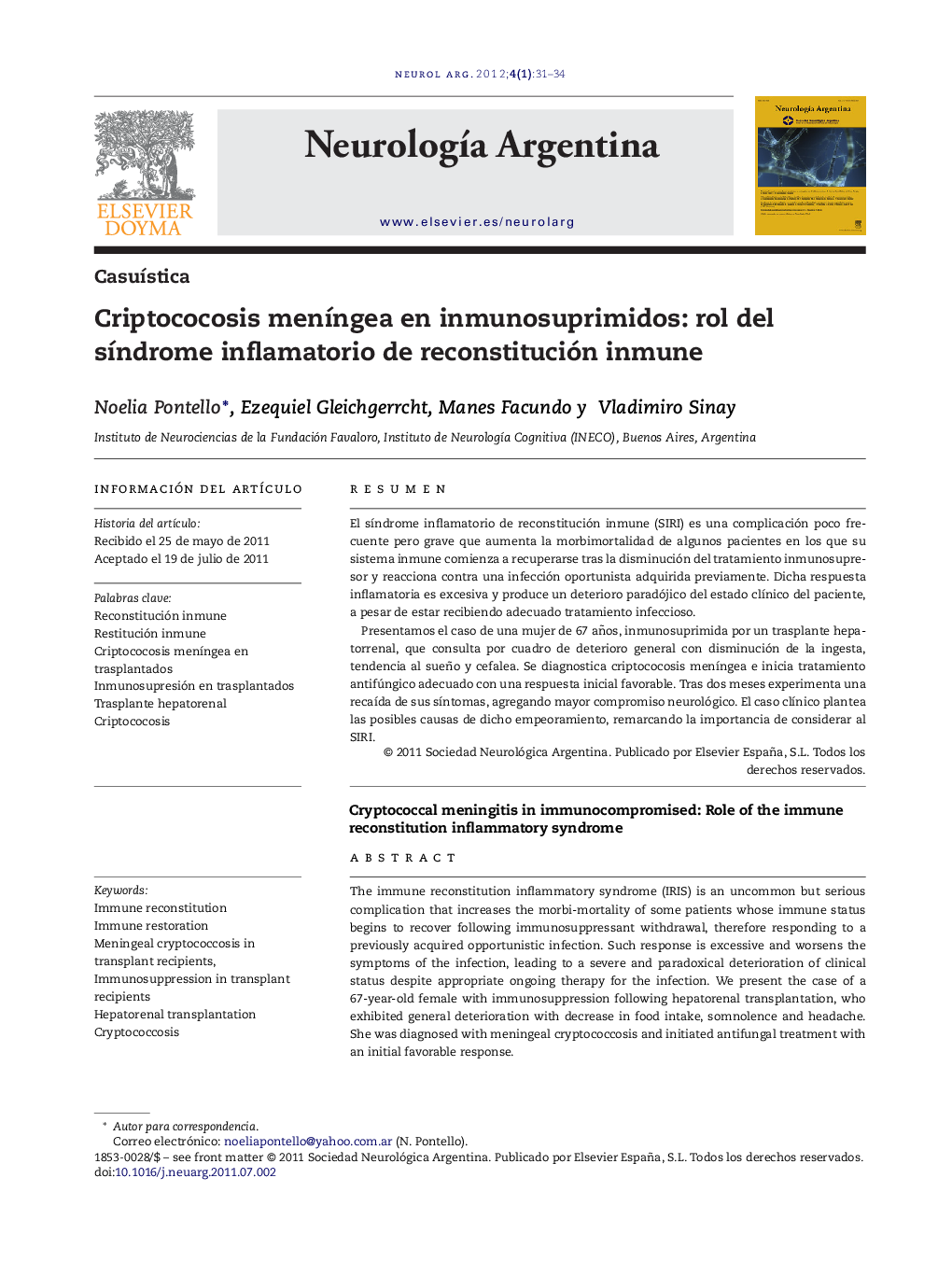| Article ID | Journal | Published Year | Pages | File Type |
|---|---|---|---|---|
| 3076714 | Neurología Argentina | 2012 | 4 Pages |
ResumenEl síndrome inflamatorio de reconstitución inmune (SIRI) es una complicación poco frecuente pero grave que aumenta la morbimortalidad de algunos pacientes en los que su sistema inmune comienza a recuperarse tras la disminución del tratamiento inmunosupresor y reacciona contra una infección oportunista adquirida previamente. Dicha respuesta inflamatoria es excesiva y produce un deterioro paradójico del estado clínico del paciente, a pesar de estar recibiendo adecuado tratamiento infeccioso.Presentamos el caso de una mujer de 67 años, inmunosuprimida por un trasplante hepatorrenal, que consulta por cuadro de deterioro general con disminución de la ingesta, tendencia al sueño y cefalea. Se diagnostica criptococosis meníngea e inicia tratamiento antifúngico adecuado con una respuesta inicial favorable. Tras dos meses experimenta una recaída de sus síntomas, agregando mayor compromiso neurológico. El caso clínico plantea las posibles causas de dicho empeoramiento, remarcando la importancia de considerar al SIRI.
The immune reconstitution inflammatory syndrome (IRIS) is an uncommon but serious complication that increases the morbi-mortality of some patients whose immune status begins to recover following immunosuppressant withdrawal, therefore responding to a previously acquired opportunistic infection. Such response is excessive and worsens the symptoms of the infection, leading to a severe and paradoxical deterioration of clinical status despite appropriate ongoing therapy for the infection. We present the case of a 67-year-old female with immunosuppression following hepatorenal transplantation, who exhibited general deterioration with decrease in food intake, somnolence and headache. She was diagnosed with meningeal cryptococcosis and initiated antifungal treatment with an initial favorable response.Two months after the patient suffered a relapse of her symptoms after which added greater neurological involvement. The present case report identifies the differential diagnoses that should be taken into account in cases similar to the one presented by our patient, highlighting the importance of considering the IRIS.
